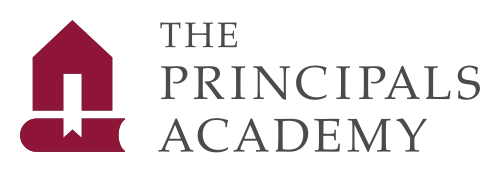Dr Mark Potterton, principal of Sacred Heart Primary and joint-author of the powerful DBE ministerial committee publication, Schools That Work, penned an article on principalship in Daily Maverick recently – ‘Carrying the torch for excellence’.
He wrote that the qualities of a successful principal are, arguably, similar to those of a country’s president, but the role of a school principal is often more demanding. Unlike a president who has access to hundreds of staff, principals must navigate their responsibilities with limited resources and support.
But what stands out for me is that presidents and principals are human, too. They make mistakes every day by saying, not saying; by going and not going; by delegating and not delegating; by including and not including; by saying it all or minding confidentiality.
I set out to write about the common mistakes that principals like you and me make, but I was side-tracked by Potterton’s striking comparison.
Writing regularly to the same readers is really challenging. The secret is just to start writing. As EM Forester remarked, ‘How do I know what I think until I see what I say’.
When I look back, I wish I got the balance right, better. I needed to be more astute and more selective about why, where, when and how I used my time and shared it better between school and home. You can be at home but actually at school. You may work with 800 families at school but remember yours is number one.
I think I often made the mistake of dominating the conversation, instead of consciously inviting broad opinion. Our role as head of school often leads us to think that, because we see the bigger picture, we know best. Nothing beats listening and, even if we do know best, the message is often much more effective if it comes from someone else. As a principal, I tried to remind myself often: leading is not all about you.
Choosing a principal is always a gamble because the pressure of the hot seat sometimes manifests itself in unforeseen ways. Too often the senior or untried candidate makes the mistake of using the office as a refuge from those obvious issues – complex or sensitive or conflicting – which simply need a principal’s positional intervention in terms of policy, flexibility, wisdom, experience or understanding.
Problems can be addressed instantly and satisfactorily by the easily accessible, willing, confident and transparent leader. Imagine a 200-bed hospital being run by a Chief Nursing Officer who spends the week behind the closed doors of an office. School or hospital-wide excellence is delivered by classroom or ward standards which are driven and delivered by professional leaders.
When one looks at the issues which get principals into trouble, number one is always financial irregularity. A financial policy needs to be full and followed. Simple, non-negotiable rules which govern control, authorisation and budgeting and navigate the necessary legal requirements. You have to be happy with all financial processes because you’re the one legally responsible; and only you. No mistakes allowed.
I think the biggest mistake principals make is not insisting, demanding and following up on core business like teachers teaching from minute one, like teachers on active break duty, like effective grade and subject meetings, like written-book control and like subject specific competence. I say it often, but we get things wrong by going through the motions of a school year rather than maximising the opportunity to take learners to that expected standard. We leave far too many behind.
If you ask teachers to identify the common mistake principals make, most will highlight communication – that ability to hear, reach, motivate and align every teacher. Having a clear message, especially a vision which people immediately associate with everything you do and say, unites and empowers the staff as a team.
I’ve always believed that great principals lead their school’s staff in person on a daily basis even if you are meeting phase teams today and the full staff tomorrow and even if it’s just a five-minute briefing. Not seeing and leading your teachers regularly face to face is a mistake.
If you ask coaches to identify a mistake, I think the answer will be not sufficient, high-quality delegation. In other words, being tied down to administrative compliance which principals do themselves because they want it right. We should be developing layers and layers of skills, carefully constructed in a working organogram.
Like presidents, principals often make the mistake of trying to please everyone. One of my colleague principals showed me a poster this week: ‘If You Want To Please Everybody, Sell Ice Cream!’
Yes, we are very human, but, fortunately, the idea is to learn from our mistakes. It’s lots of learning because we make them every day.
Paul
Coach/Mentor
The Principals Academy Trust
No: 04/25
05 March 2025
Video/Audio Link
English Newsletter
Afrikaans Version
